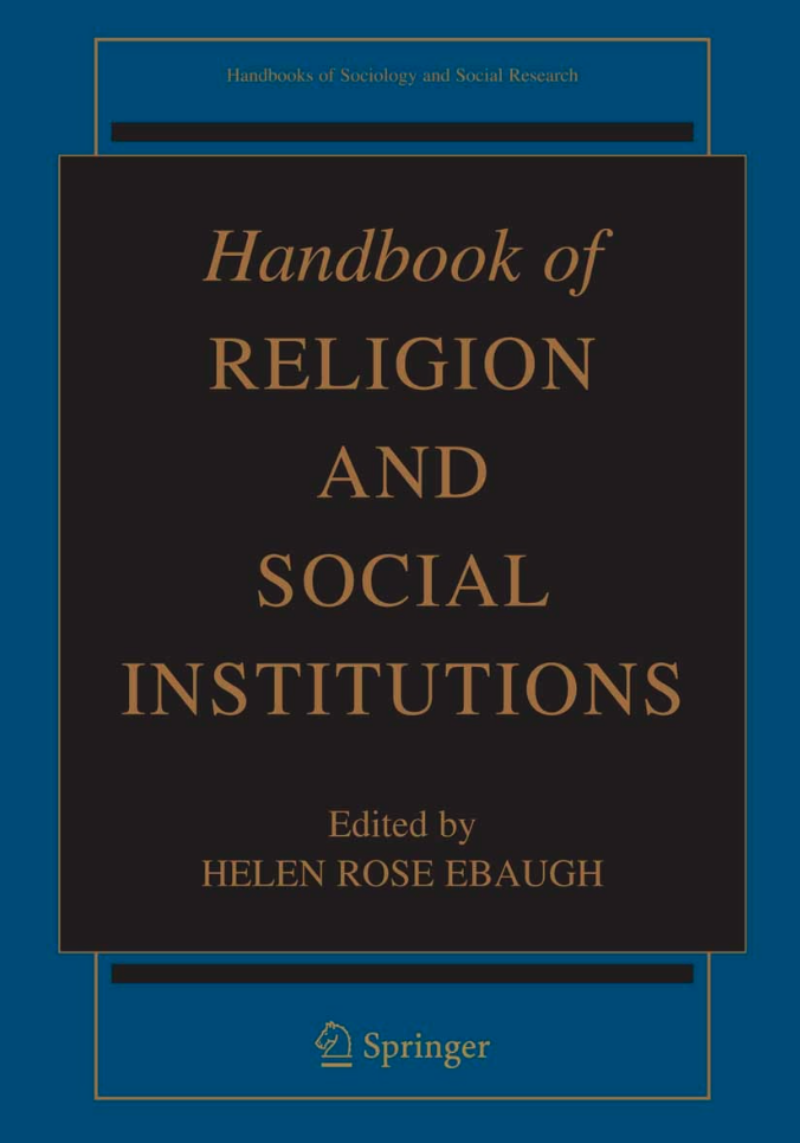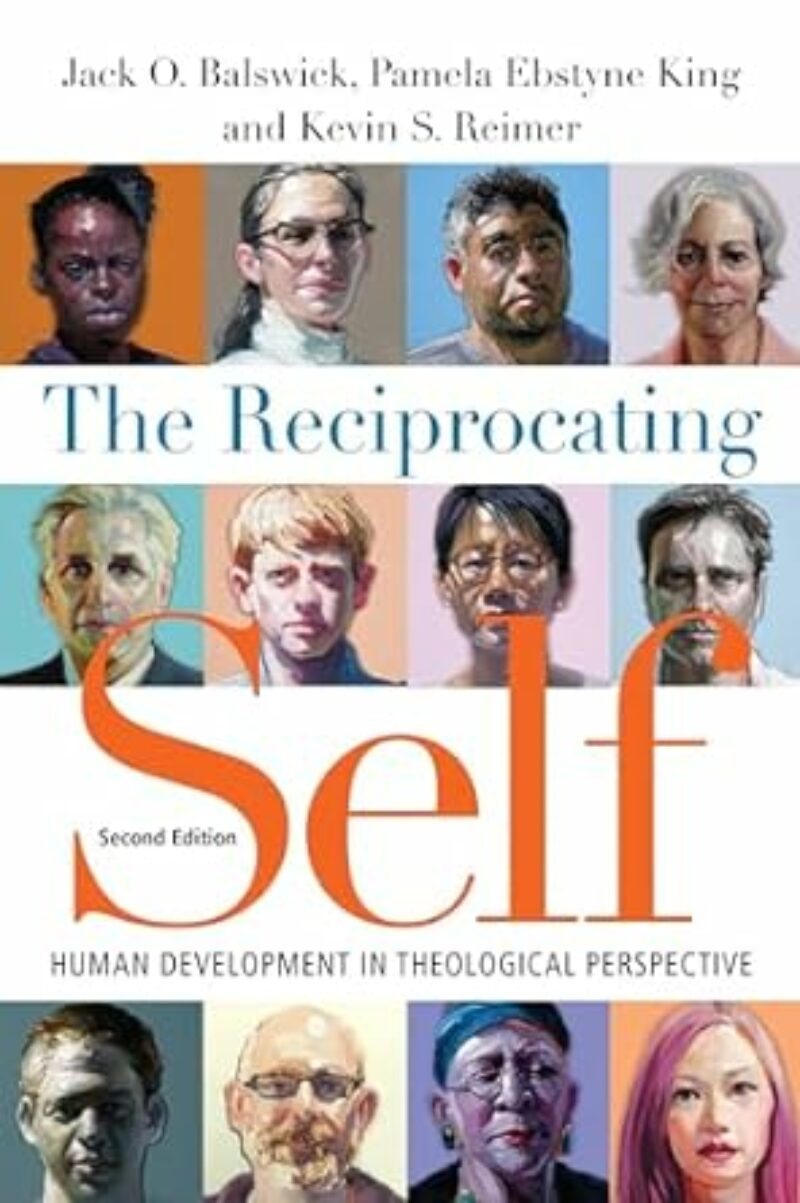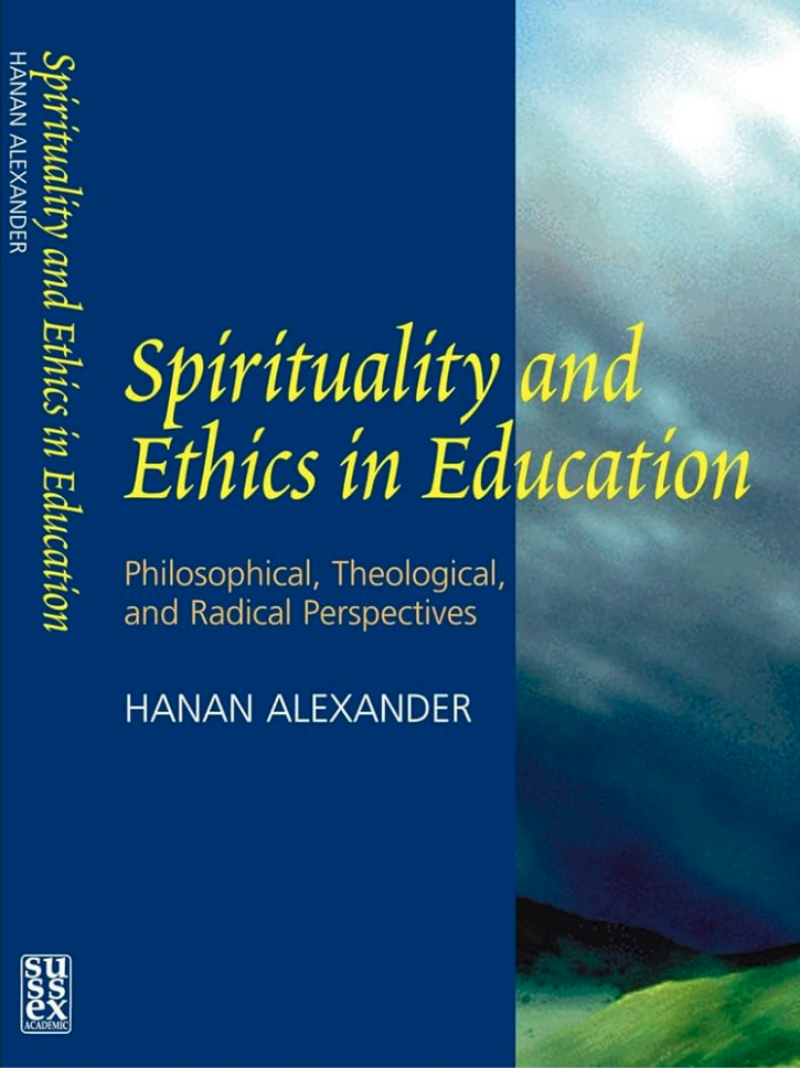Topic Archive
Youth
Spirituality

Research Link
Religion and adolescent development
Citation Benson, P. L., & King, P. E. (2005). Religion and adolescent development. In H. R. Ebaugh (Ed.), The handbook of religion and social institutions. New York: Springer. Abstract Handbook for Religion and Social Institutions is written for sociologists who study a variety of sub-disciplines and are interested in recent studies and theoretical approaches that relate religious variables to their particular area of interest. The handbook focuses on several major themes: -Social Institutions such as Politics, Economics, Education, Health and Social Welfare -Family and the Life Cycle -Inequality -Social Control -Culture -Religion as…
Spirituality

Research Link
The reciprocating self: A theological perspective of development
Citation Balswick, J. O., King, P. E., & Reimer, K. S. (2005). The reciprocating self: A theological perspective of development. Downers Grove, IL: InterVarsity Academic Press. Abstract The purpose of “The Reciprocating Self: Human Development in Theological Perspective” is to present an integrated view of human development that is based on social science research and biblical truths. We do this by drawing on a biblical model of relationality, where the created goal or purpose of human development is to become a reciprocating self-fully and securely related to others and to God. The ideas for this book came to us as...
Spirituality

Research Link
Editors’ introduction: Exploring adolescent spiritual and religious development: Current and future theoretical and empirical perspectives
Citation King, P. E., & Boyatzis, C. J. (2004). Editors’ introduction: Exploring adolescent spiritual and religious development: Current and future theoretical and empirical perspectives. Applied Developmental Science, 8, 2-6. Copyright Year: 2004 Holder: Lawrence Erlbaum Associates, Inc. DOI: https://doi.org/10.1207/S1532480XADS0801_1…
Spirituality

Research Link
Communities of Character: Religion in the Moral Development of American and Korean Youth
Citation King, P. E. (2004). Communities of Character: Religion in the Moral Development of American and Korean Youth. In H. Alexander (Ed.), Spirituality and ethics in education: Philosophical, theological, and cultural perspectives. East Sussex, England: Sussex Academic Press. Abstract Leading philosophers, theologians and critical theorists have contributed to Spirituality and Ethics in Education which provides an international, multicultural, interfaith forum concerning the philosophical, theological, and practical foundations of ethics in spiritual education for a rapidly changing world. Copyright Year: 2005 Holder: Sussex Academic Press DOI: https://trove.nla.gov.au/work/30175471…
Spirituality

Research Link
Religion and Positive Youth Development: Identity, Meaning, and Prosocial Concerns
Citation Furrow, J. L., King, P. E., & White, K. (2004). Religion and positive youth development: Identity, meaning, and prosocial concerns. Applied Developmental Science, 8(1), 17-26. Abstract The role of religious identity in positive youth development was examined in this study of personal meaning and prosocial concerns in adolescence. A structural equation model was tested on a sample of 801 urban public high school students. Participants responded to questionnaires assessing religious identity, personal meaning, and prosocial personality. Prototypical descriptors derived from Walker and Pitts’s (1998) highly religious person concept were examined as a measure of religious identity. Findings demonstrate a...
Spirituality

Research Link
Religious Involvement and Developmental Resources in Youth
Citation Wagener, L. M., Furrow, J. L., King, P. E., Benson, P. L., & Leffert, N. (2003). Religious involvement and developmental resources in youth. Review of Religious Research, 44(3), 271-284. Abstract Religious involvement is associated with a variety of positive developmental outcomes including restraint from risk, increased coping, and prosocial values and behavior. This study examines a model that explains religious influence on these positive outcomes through the mediating effects of developmental resources important in adolescence. Tests of the model on questionnaire responses derived from a sample of 20,020 youth in grades 6-12 suggest that religious factors are associated…
Spirituality

Research Link
The influence of families and peers on adolescent religiousness.
Citation King, P. E., Furrow, J. L., & Roth, N. (2002). The influence of families and peers on adolescent religiousness. Journal of Psychology and Christianity, 21(2), 109–120. Abstract Although the issue of religion and mental health has been receiving increasing attention as researchers discover links between religious affiliation and indicators of psychological well-being, very little research attention has been given to strengthening the presence of religion in the lives of adolescents. This study explored the impact of family and peers on adolescents’ experience of God and their value of religion in an effort to better understand the dynamics of social...